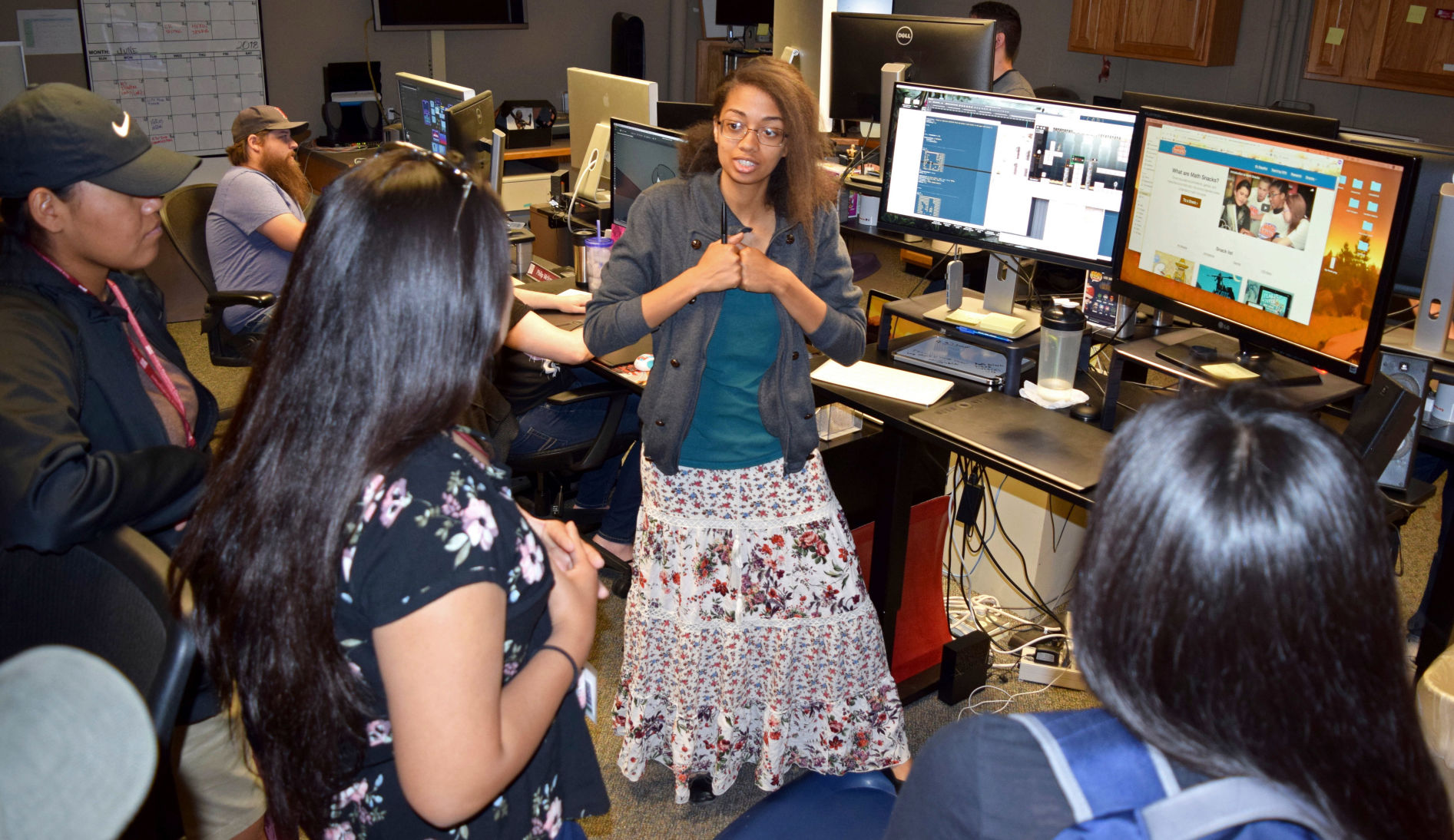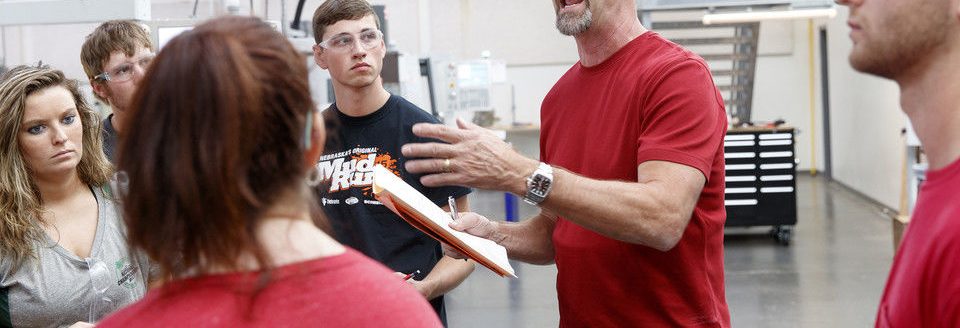Agriculture is a part of your life if you eat, wear natural fiber clothes and care about the environment.
These are the points the dean of New Mexico State University’s College of Agricultural, Consumer and Environmental Sciences told a group of Native American high school students during DreamKeepers week.
“There is a wide variety of career opportunities with a degree from NMSU,” Dean Rolando A. Flores said. “This week we want to introduce you to some of those opportunities.”
DreamKeepers Summer Program is part of the Indian Resource Development program where Native American youth from across New Mexico visit NMSU to introduce them to the university.
During this year’s first of two sessions, the youth visited the College of ACES, Business and Engineering and were given overviews of areas of study in each college. They learned about the importance of economic development on their reservation, how to create a resume, and robotic engineering.
The College of ACES day was filled with visits to the computer game design lab, plant and environmental sciences research labs, ACES in the Hole food lab, Chile Pepper Institute and Arthropod Museum. They also learned about careers in the Cooperative Extension Service and hotel, restaurant and tourism management.
They even experienced feeling the inside of a cow’s stomach while learning about cattle nutrition research with cannulated cows.
A second DreamKeepers week is scheduled for July 15 to 20.
The Indian Resource Development program began in 1978 to encourage Native American students to pursue college degrees. It was state legislative mandated and funded to provide opportunities and experience that help tribal students become professionals in business, agriculture, science, engineering and resource management.
“We are seeking opportunities to work with our Native American tribes and pueblos to encourage their youth to pursue a higher education,” Flores said. “There have been many reasons and excuses why these youths have not attended college, but we must figure out ways to overcome these issues.”

